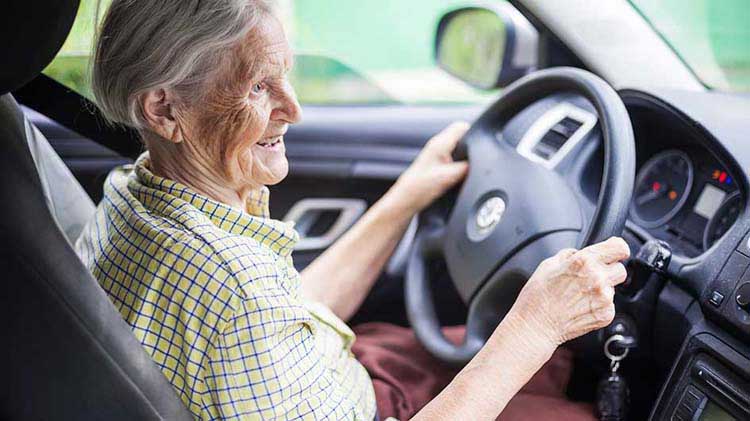When should seniors stop driving?
Take these steps to help plan a loved one's driving "retirement."
It can be a difficult and painful task to help a loved one decide that it is time to stop driving. Driving allows older adults to maintain their independence, but those benefits must be weighed with safety. According to the CDC, drivers 70 years or older have a higher crash death rate than middle aged drivers, and this is primarily due to being more vulnerable to injuries.
Here are some tips that can help you decide if your loved one should stop driving.
Assess elderly driver's skills and risks
The right time to have an older person stop driving will vary, but there are signs to watch for when you're making this decision. Some signs that a driver may be putting others and themselves in danger include:
- Failure to stop or yield at lights and signs
- Becoming lost in familiar areas
- Inability to maintain a consistent speed
- Braking too late or too hard
- Difficulty merging and keeping up with the flow of traffic
- Having trouble staying in the same lane
- Frequent near misses
- Signs of dents and scrapes on the person’s car
- Stress
Older drivers need to be aware of any possible health issues that may impair their driving. The ability to drive may be hindered by health conditions such as:
- Alzheimer's disease or dementia
- Arthritis
- Cataracts
- Diabetes
- Glaucoma
- Hearing impairment
- Macular degeneration
- Parkinson's disease
- Sleep apnea
- Stroke
Listen to elderly drivers
Just because you haven't discussed a loved one's driving doesn't mean he or she isn't thinking about it too. Perhaps they've noticed more difficulties at dusk — tune into that and set up some one-on-one time. Start with open-ended questions: Ask if friends of theirs have had to give up driving, for example. Or find out if your loved one feels that their vision is changing. Keep an open mind and focus your talking points to reflect your concerns for your loved ones' safety (and others who are on the road).
Get help from their doctor
A driver's doctor can be an important resource. They have access to medical records of the driver and are trained in evaluating these types of situations. If you have concerns, tell the driver's physician or eye doctor and be as specific as you can.
Doctors, by law, can't share medical information without a patient's permission, but will be able to assess their safety and may help the driver take the correct steps.
Make a plan
Solo driving isn't just about getting behind the wheel. It's also about getting groceries when they want or visiting friends no matter the day or time. To help transition into a future that may not include independent driving, help create alternatives. Here are some options to consider:
- Rideshare services
- Transportation provided by senior centers
- Bus services offered by the city
- Church or community transportation services
- Family or friends who can offer rides to appointments or run errands
- Online grocery and pharmacy order and delivery services
Your conversation may start with denial and anger, but don't stop having a caring, compassionate conversation. Avoid confrontation if you can and instead express empathy. One day someone may have the very same conversation with you.
Safety tips for senior drivers
If you and your loved one decide it is safe to keep driving, here are some safety tips you can share with them:
- Avoid driving during certain times or weather conditions. Daytime driving offers more light and visibility. Driving in the rain, fog or other severe weather may add stress and be more challenging, so it can be helpful to stay home during bad weather conditions.
- Practice safe driving habits. Wearing a seatbelt, avoiding driving distractions like using a cell phone and practicing defensive driving can help contribute to a safer commute.
- Consider car safety features. A car with automatic transmission, backup cameras and other safety features may provide some additional protection when driving.
- Plan the drive. Help alleviate stress by planning the route, avoiding rush hour or high speed roads and driving in familiar surroundings.
Now that you have read information about seniors and driving, you may want to learn more about caring for elderly parents, different types of senior living options or tips for having a financial conversation for aging family members.




